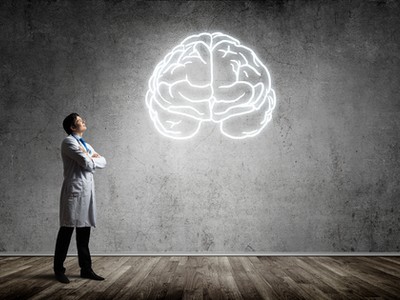
Depression Anxiety Symptoms Psychologist Mermaid Beach (07) 5539 9798
Depression Psychologist Mermaid Beach

Introduction: Depression Help Psychologist Mermaid Beach Near Me
Anxiety and anxiety are 2 of the most common mental health disorders that individuals face today. While they might appear like different conditions, they are typically interconnected and can have a considerable influence on a person's total well-being. In this short article, we will check out the connection between stress and anxiety and depression, the signs connected with each condition, and what steps people can require to handle and get rid of these challenges.
Understanding Stress and anxiety and Depression
What is Anxiety?
Anxiety is a natural action to stress or risk. It is characterized by feelings of worry, worry, and fear about daily scenarios. While it is typical to experience stress and anxiety from time to time, chronic anxiety can interfere with daily activities and effect one's quality of life.
What is Depression?
Depression, on the other hand, is a state of mind condition that impacts how you feel, think, and manage everyday activities. It goes beyond normal sensations of sadness or sorrow and can persist for weeks, months, or even years. Depression can make it tough to function in different areas of life, including work, relationships, and self-care.
The Connection Between Stress And Anxiety and Depression
Anxiety and depression typically work together. Many individuals who experience anxiety likewise battle with symptoms of depression, and vice versa. The link between the 2 conditions surfersparadisechiropractic.com.au can be attributed to several factors:
Chemical Imbalance: Both stress and anxiety and anxiety are believed to involve an imbalance of neurotransmitters in the brain, such as serotonin and dopamine.
Shared Genetic Aspects: Research recommends that there might be a genetic predisposition for developing both anxiety and depression.
Stressful Life Occasions: Traumatic experiences or considerable life occasions can activate both stress and anxiety and depression symptoms.
Negative Believing Patterns: People with anxiety tend to have negative thoughts and stress exceedingly about future events. These thought patterns can contribute to the development of depression.
Physical Symptoms: Anxiety and anxiety can manifest with similar physical symptoms, such as tiredness, sleep disturbances, and modifications in appetite.
Symptoms of Anxiety
Anxiety can manifest in numerous ways and may present different symptoms in each individual. Some common symptoms of anxiety consist of:
Excessive Worry: Consistent and extreme stressing over daily situations, even when there is no apparent reason for concern.
Restlessness: Feeling on edge or unable to relax, frequently accompanied by physical symptoms like shivering or fidgeting.
Difficulty Concentrating: Difficulty focusing or staying present due to racing thoughts or preoccupation with worry.
Irritability: Feeling quickly upset or upset, often without a clear cause.
Sleep Disruptions: Insomnia or restless sleep due to racing ideas or worries.
Physical Signs: Stress and anxiety can also manifest physically, causing symptoms such as rapid heart beat, shortness of breath, dizziness, or gastrointestinal issues.
Symptoms of Depression
Depression can vary in intensity and presentation from individual to individual. Some typical symptoms of anxiety include:
Persistent Sadness: Feeling sad, empty, or hopeless for an extended period, frequently accompanied by tearfulness.
Loss of Interest: Disliking activities when enjoyed and experiencing a lack of motivation.
Changes in Cravings: Considerable weight-loss or gain due to modifications in cravings or eating habits.
Fatigue: Feeling tired and doing not have energy, even after getting enough sleep.
Difficulty Concentrating: Problem focusing, making choices, or remembering details.
Suicidal Ideas: In extreme cases, anxiety can result in ideas of self-harm or suicide. It is vital to look for aid if you experience these thoughts.
How to Manage Anxiety and Depression
Managing anxiety and depression needs a comprehensive technique that addresses both the physical and psychological aspects of these conditions. Here are some techniques that can help:
Seek Expert Help: Talk to a psychological health professional, such as an anxiety psychologist in Surfers Paradise, who can provide a precise medical diagnosis and develop a personalized treatment plan.
Medication: In many cases, medication might be prescribed to help handle symptoms of stress and anxiety and depression. A competent doctor can figure out if medication is necessary.
Therapy: Cognitive-behavioral treatment (CBT) and other evidence-based therapies can assist people determine unfavorable idea patterns, establish coping mechanisms, and improve general wellness.
Self-Care: Take part in activities that promote self-care, such as regular workout, practicing relaxation strategies (e.g., deep breathing or meditation), guaranteeing appropriate sleep, and maintaining a well balanced diet.
Social Assistance: Reach out to pals, family, or support groups who can supply understanding and motivation throughout challenging times.
Avoid Drug abuse: Drug abuse can aggravate signs of stress and anxiety and depression. It is essential to prevent self-medicating with drugs or alcohol.
Frequently Asked Questions
- Anxiety is defined by extreme worry and fear about everyday scenarios, while depression includes consistent feelings of sadness or despondence that impact day-to-day functioning.
- Yes, anxiety is considered a mental illness when it disrupts every day life and triggers considerable distress.
- Signs of depression in males might consist of irritation, anger or aggressiveness, increased risk-taking habits, drug abuse, or physical signs like headaches or gastrointestinal issues.
- While there is no definitive treatment for stress and anxiety and depression, they can be successfully handled and treated with the best combination of therapy, medication, and self-care strategies.
- Yes, depression is a mental disorder characterized by persistent sensations of sadness, despondence, and a loss of interest in activities as soon as enjoyed.
- Offer support and encouragement, listen without judgment, and encourage them to seek expert help. Educate yourself about their conditions to much better understand their experiences.
Conclusion
Anxiety and anxiety are intricate conditions that frequently exist together and can significantly affect an individual's wellness. Understanding the connection between these 2 disorders is important for reliable treatment and management. By looking for expert assistance, practicing self-care, and developing a strong support group, people can take steps towards getting rid of anxiety and anxiety and gaining back control over their lives. Remember that you are not alone in this journey, and there is wish for a brighter future.
Does Anxiety Cause Depression Psychologist Mermaid Beach
Depression Anxiety Stress Test Psychologist Mermaid Beach Near Me
Isabella Whittingham Registered Psychologist Gold Coast
Surfers Paradise Chiropractic Centre-Dr. Bruce Whittingham
12 Thomas Drive, Surfers Paradise QLD 4217
(07) 5539 9798
https://surfersparadisechiropractic.com.au
Major Depressive Disorder With Anxious Distress Psychologist Mermaid Beach Near Me